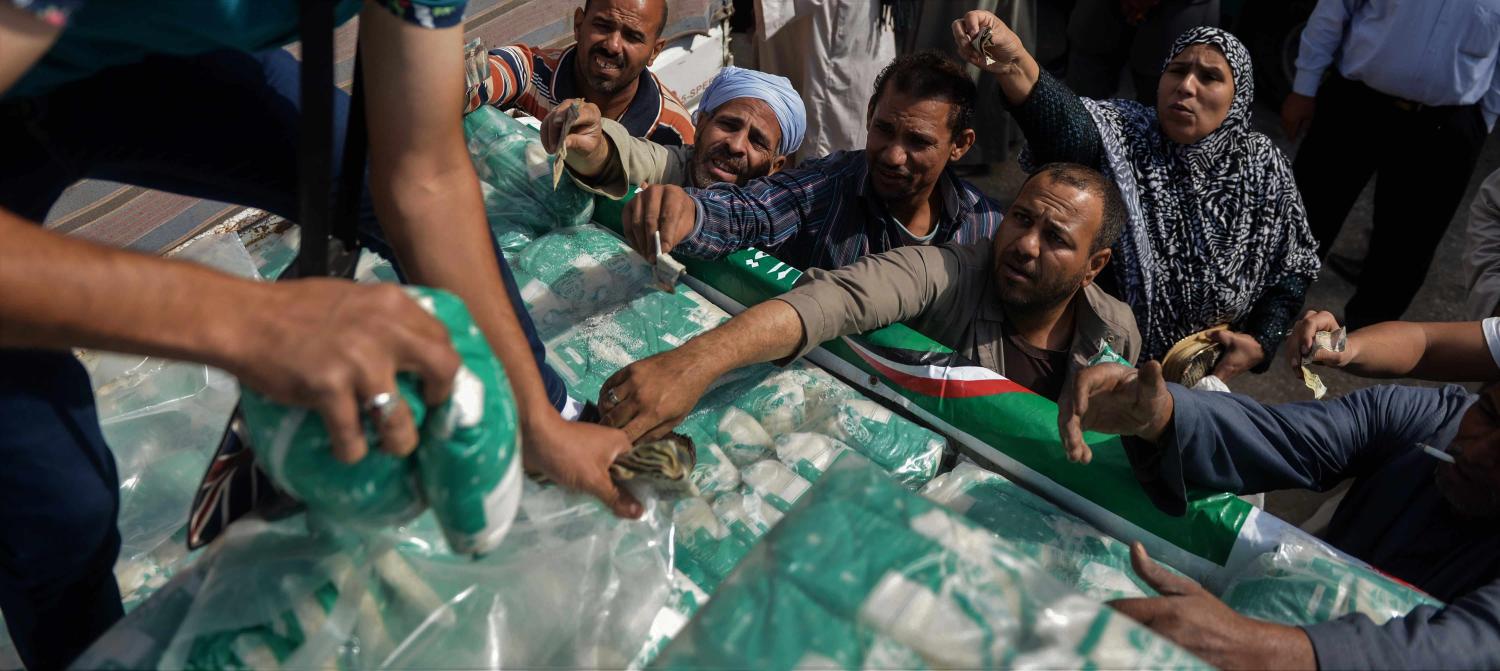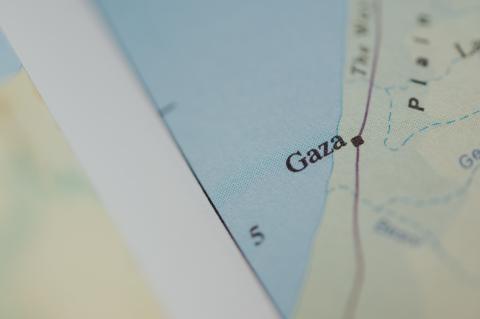Six years after the revolution in Egypt that demanded bread and social justice, the country is on the brink again. With inflation at a seven-year high, a foreign exchange crisis that has led to food shortages, and debt and the deficit rising, the country is facing its worst economic and financial crisis in decades.
On 11 November the International Monetary Fund approved a $12bn bailout program aimed at overhauling Egypt’s ailing economy. The deal, one of the largest in the IMF’s history, reflects international concern over the looming contingency of Egypt’s economic collapse.
Since the ousting of former President Mohamed Morsi in 2013, Egypt’s economy has been kept afloat by financial aid from the Gulf, and in particular from Saudi Arabia. Much of this aid flow has dried up over the past year as a result of diplomatic fallouts between the two countries over the Egyptian islands of Tiran and Sanafir and the wars in Syria and Yemen, as well as Saudi Arabia’s own financial crisis.
The government has already floated the Egyptian pound and cut fuel subsidies in order to receive the first tranche of the IMF package. These measures will no doubt increase investor confidence but further structural reforms required by the IMF, including a Value Added Tax (VAT) and civil service reform, carry the risk of increased social tension.
President Sisi’s popularity has already taken a hit. In a video that went viral on social media earlier this month a tuk-tuk driver expressed the sentiment of many Egyptians plainly: ‘You watch Egypt on television and it's like Vienna; you go out on the street and it's like Somalia's cousin.’ However, protests planned for 11 November did not end up taking place, due in part to Egypt’s strict protest laws and a heavy security presence on the day.
Analysts have been quick to link Egypt’s economic hardship and renewed protests to its political stability. Certainly, there are parallels with the 1977 bread riots – protesting a similar IMF loan – and the 2011 protests that led to the ousting of Hosni Mubarak. However, as Carnegie’s Amr Adly phrased it, ‘the question is not whether the Sisi regime will last, but the kind of regime that is likely to emerge from Egypt’s economic turmoil.’
In trying to consolidate its political control amidst an economic storm, the Sisi regime will face two main obstacles. First, Egypt has few international allies that have the financial clout and are willing to aid its economic recovery without significant reforms. As relations with Saudi Arabia have soured, Egypt has been cultivating its ties with Russia, a vital source of tourist revenues. On 8 October, Egypt supported a Russian-sponsored UN Security Council draft resolution on Syria that was vehemently opposed by the Saudis. Egypt’s UN vote, however, is not a realignment with Russia per se but part of a larger strategic calculus that includes the strengthened position of Russia in the region, and the overreliance on Gulf aid.
Secondly, the road to economic recovery prescribed by the IMF will face resistance from his largest political backers, the military and the civil service. Over the past few years, the military has expanded its economic role, which hasn't help generate the kind of inclusive growth necessary for an economic recovery. At the same time, this strategy has alienated alternative sources of growth, such as the private sector.
Faced with these obstacles, Sisi will likely try to delay IMF mandated reforms for as long as possible while engaging in a strategic blackmail of sorts in the region for financial support. Ultimately this isn't a winning economic strategy, but in the current situation Sisi cannot both have political consolidation and economic growth.
Photo: Getty Images/Anadolu Agency

